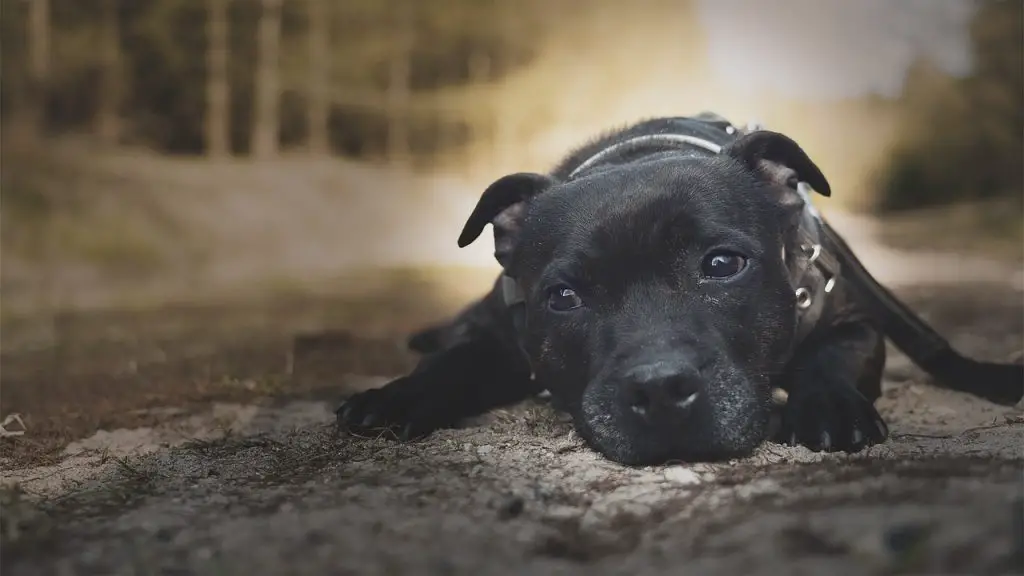If your dog is pooping mucus, experiencing diarrhea, and passing blood, it’s a red flag that shouldn’t be ignored.
While occasional mild digestive upset can be harmless, the presence of blood and mucus signals potential inflammation or a more serious underlying condition.
We outline the common causes of a dog pooping mucus and diarrhea with blood, what you can do at home, and when to seek veterinary help.
Dog Pooping Mucus Diarrhea With Blood — Why It Happens
When a dog passes stool that contains mucus diarrhea and blood, it usually means the intestines are irritated or inflamed. This can happen from dietary indiscretion, infections like parvovirus or giardia, parasites such as hookworms or whipworms, or even more serious conditions like colitis or inflammatory bowel disease.
Trauma, toxins, or ingestion of foreign objects can also damage the digestive lining and lead to these alarming symptoms.
Regardless of the cause, it’s a clear sign your dog’s digestive system is under stress and may require medical attention.

Dog Pooping Mucus Diarrhea With Blood: Common Causes
Colitis
Colitis, or inflammation of the large intestine, often causes stools that are loose, slimy, and streaked with blood.
Dogs with colitis may strain to defecate and pass small amounts frequently. Stress, sudden diet changes, or bacterial overgrowth can trigger flare-ups.
Because colitis is painful and persistent, veterinary care is often needed to identify the trigger and provide relief.
Read more: Dog Pooping Mucus and Diarrhea (Why it happens)
Parvovirus
Parvovirus is a highly contagious viral infection that causes severe bloody diarrhea, vomiting, and rapid dehydration.
Puppies are especially vulnerable, and without prompt treatment, parvo can be fatal. The virus attacks the lining of the intestines, leading to bloody, foul-smelling diarrhea with mucus.
Any suspicion of parvovirus is a medical emergency that requires immediate veterinary attention.
Intestinal Parasites
Hookworms, whipworms, and other intestinal parasites can cause mucus-laden diarrhea with blood.
These parasites latch onto the intestinal lining, causing irritation, bleeding, and nutrient loss. In severe cases, young puppies and small breeds may become anemic from chronic blood loss.
Routine fecal testing and deworming are essential to protect your dog’s digestive health.
Dietary Indiscretion or Toxins
Dogs often eat things they shouldn’t — spoiled food, garbage, or toxic substances. These irritants can inflame the digestive tract, resulting in diarrhea mixed with mucus and blood.
Toxic foods such as onions, grapes, or chemical ingestion can further damage internal tissues and worsen symptoms. If you suspect toxin exposure, seek veterinary care immediately.
Inflammatory Bowel Disease (IBD)
IBD is a chronic condition where the immune system mistakenly attacks the intestinal lining.
This leads to ongoing inflammation, mucus-coated stools, and sometimes blood.
Dogs with IBD often show recurring bouts of diarrhea, weight loss, and decreased appetite. Because it is a long-term condition, treatment focuses on diet modification, medications, and ongoing monitoring.
Foreign Body Obstruction
If a dog swallows a toy, bone, or other object, it can cause irritation, blockage, and damage to the intestines.
As the lining becomes injured, blood and mucus may appear in the stool, often accompanied by vomiting and abdominal pain.
Foreign body ingestion is a serious emergency, especially if the dog is lethargic and unable to pass stool normally.
What to Do If Your Dog Is Pooping Mucus Diarrhea With Blood
If your dog’s stool contains blood and mucus, start by withholding food for 12 hours (but never withhold water) to allow the digestive system to rest.
Offer small amounts of plain, bland foods such as boiled chicken and rice once you reintroduce meals.
Make sure your dog stays hydrated by encouraging water intake or offering unseasoned broth.
If stress or sudden diet change seems to be the trigger, keep meals consistent and maintain a calm environment.
Monitor your dog’s energy levels, appetite, and stool consistency closely over the next 24 hours.
If symptoms persist beyond a day, worsen, or your dog shows additional warning signs, veterinary care is essential.
Supportive care at home is not enough when bloody diarrhea continues, as it can quickly lead to dehydration and complications.
When to Call or Visit Your Vet
Contact your vet immediately if your dog has persistent bloody diarrhea with mucus, is vomiting, lethargic, or refusing food and water.
Puppies, senior dogs, and those with chronic health issues are at higher risk of serious complications and should be seen without delay.
If the stool is very dark, tarry, or has a foul odor, it may indicate bleeding higher up in the digestive tract, which requires urgent investigation.
Repeated straining, abdominal pain, or bloating are also emergency signs that should not be ignored.
Read more: Dog Pooping Mucus and Throwing Up (What it means )
Key Takeaway
Seeing your dog poop mucus, diarrhea, and blood is always concerning and should never be dismissed.
While some cases may resolve with supportive care, others signal serious illnesses like parvovirus, parasites, or inflammatory bowel disease.
The safest step is to monitor closely, provide hydration and a bland diet, and seek veterinary advice if symptoms persist or worsen.
Acting quickly ensures your dog gets the right care and has the best chance of recovery.
